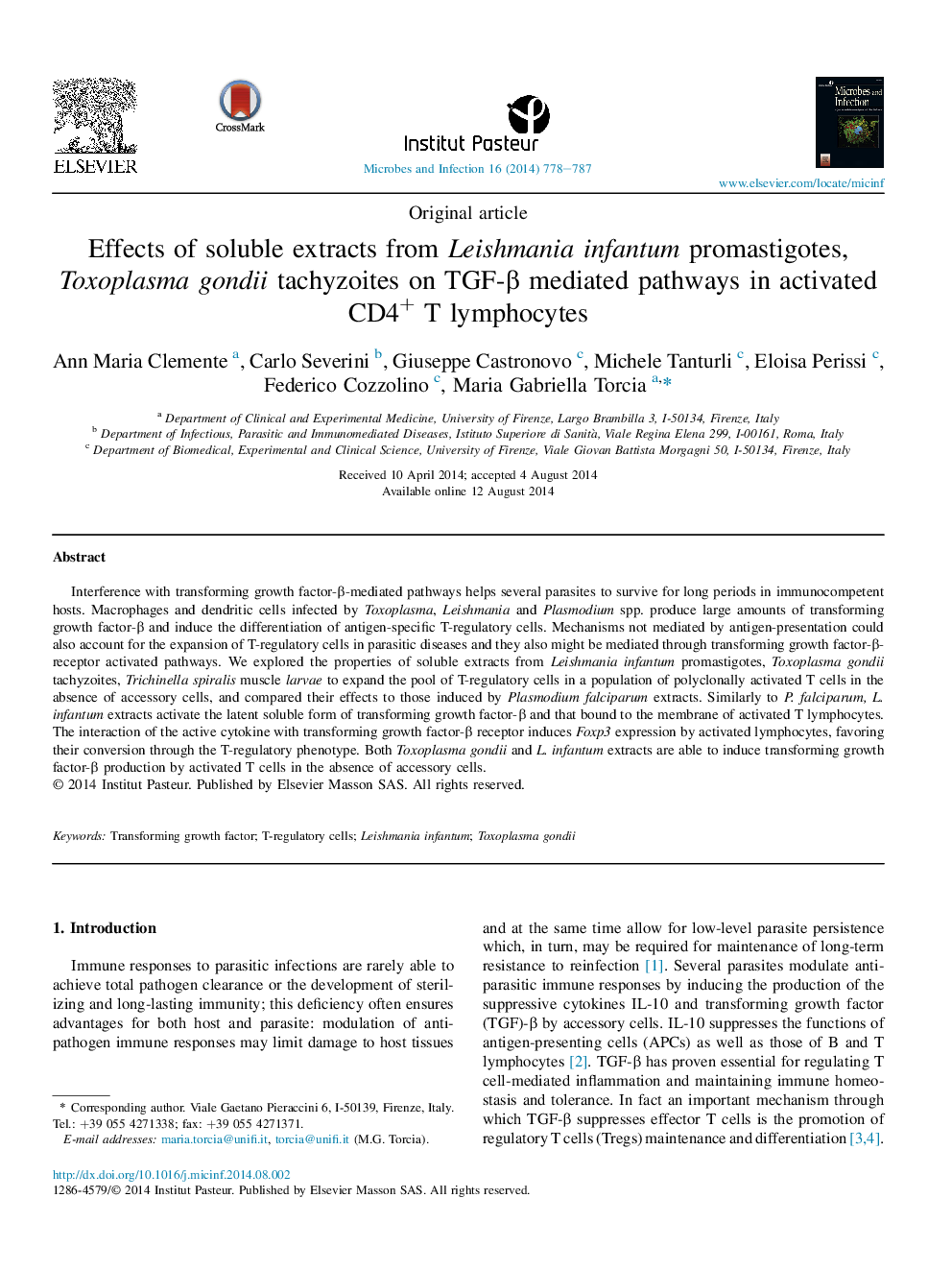| Article ID | Journal | Published Year | Pages | File Type |
|---|---|---|---|---|
| 3414725 | Microbes and Infection | 2014 | 10 Pages |
Interference with transforming growth factor-β-mediated pathways helps several parasites to survive for long periods in immunocompetent hosts. Macrophages and dendritic cells infected by Toxoplasma, Leishmania and Plasmodium spp. produce large amounts of transforming growth factor-β and induce the differentiation of antigen-specific T-regulatory cells. Mechanisms not mediated by antigen-presentation could also account for the expansion of T-regulatory cells in parasitic diseases and they also might be mediated through transforming growth factor-β-receptor activated pathways. We explored the properties of soluble extracts from Leishmania infantum promastigotes, Toxoplasma gondii tachyzoites, Trichinella spiralis muscle larvae to expand the pool of T-regulatory cells in a population of polyclonally activated T cells in the absence of accessory cells, and compared their effects to those induced by Plasmodium falciparum extracts. Similarly to P. falciparum, L. infantum extracts activate the latent soluble form of transforming growth factor-β and that bound to the membrane of activated T lymphocytes. The interaction of the active cytokine with transforming growth factor-β receptor induces Foxp3 expression by activated lymphocytes, favoring their conversion through the T-regulatory phenotype. Both Toxoplasma gondii and L. infantum extracts are able to induce transforming growth factor-β production by activated T cells in the absence of accessory cells.
